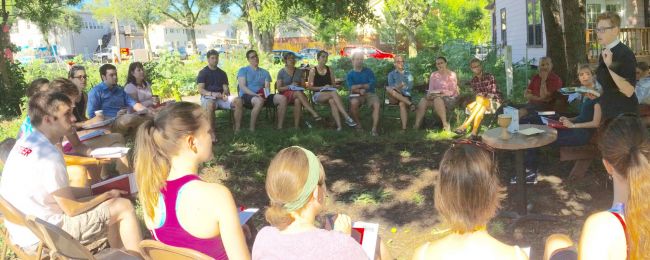Communities of Learning are collaborative, ecumenical, and geographical cohorts of students and ministry leaders committed to connecting congregations with their communities. Through this program, residential M.Div. students participating in field education placements in the same geographical area meet together with ministry and nonprofit leaders to collaborate on strengthening their communities.
